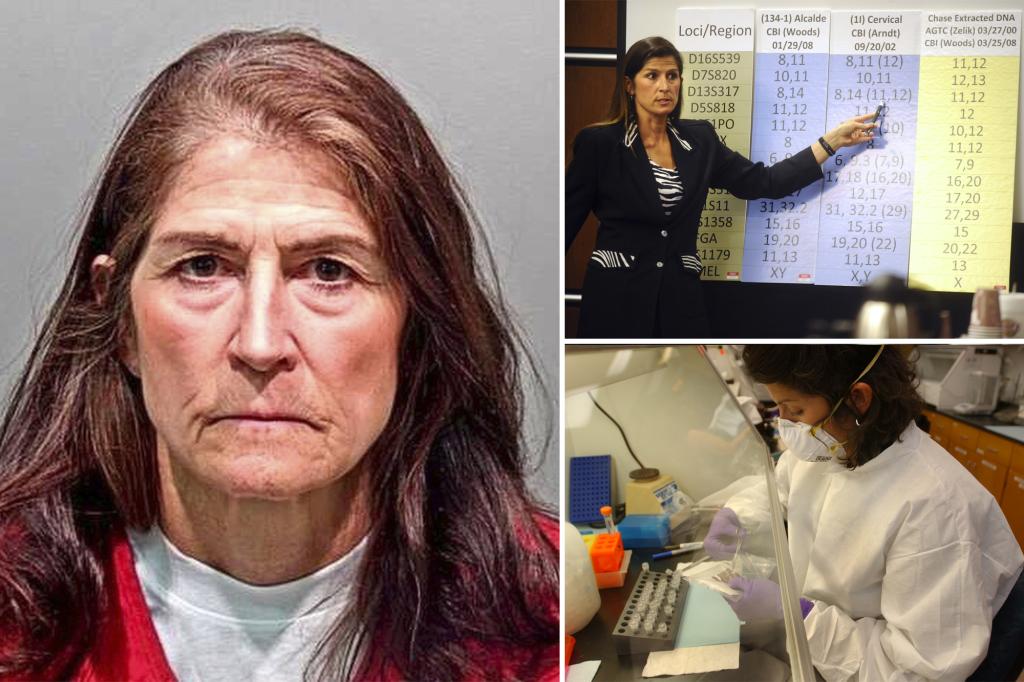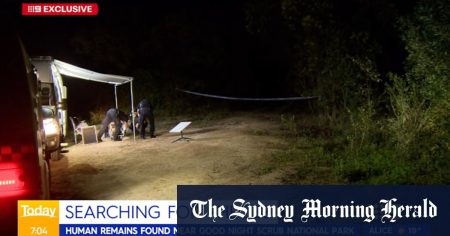The Colorado Bureau of Investigation (CBI) forensic scientist, Yvonne “Missy” Woods, finds herself at the center of a sprawling criminal investigation involving the alleged mishandling and manipulation of DNA evidence in numerous sexual assault cases spanning 15 years. Woods, a veteran employee with the CBI since 1994, faces a staggering 102 charges, including cybercrime, first-degree perjury, attempts to influence a public servant, and forgery. The accusations paint a disturbing picture of potentially compromised justice, with over 30 sexual assault cases and more than 20 law enforcement agencies across Colorado affected by her alleged misconduct. The financial implications are already substantial, with the CBI estimating costs exceeding $11 million, a figure expected to rise as the ripple effects of the case continue to spread throughout the state’s legal system.
The alleged deceptive practices employed by Woods involved manipulating critical data related to DNA samples. Prosecutors allege that Woods deliberately deleted specific information from reports and submitted findings indicating “No Male DNA found,” even when traces might have been present. Furthermore, she allegedly concealed potential contamination issues that warranted further laboratory analysis. This deliberate obfuscation and alteration of data, according to the accusations, had the potential to significantly impact the outcomes of the sexual assault cases involved. The manipulation of evidence not only undermines the pursuit of justice but also creates a chilling effect on victims seeking redress, potentially discouraging future reporting of sexual assault crimes.
The unraveling of Woods’ alleged misconduct began with a seemingly routine observation by a CBI intern in September 2023. While reviewing quantification data from vestibular swabs in historical sexual assault cases, the intern noticed missing data, a discrepancy that triggered an internal investigation. This initial discovery opened a Pandora’s Box, revealing a pattern of similar discrepancies in Woods’ workbooks. The investigation uncovered instances of altered or deleted data crucial to the quality control process, raising serious concerns about the integrity of the analyses conducted by Woods over an extended period. The fact that such a significant breach of protocol was discovered by an intern highlights potential vulnerabilities in the CBI’s oversight procedures.
The scope of the alleged misconduct prompted the CBI to enlist the assistance of an external agency, the South Dakota Division of Criminal Investigation, to ensure an impartial and thorough investigation. Their findings corroborated the initial internal investigation, substantiating the allegations against Woods. The South Dakota investigators uncovered evidence suggesting that Woods not only masked potential contamination but also repeatedly altered quantification values and re-ran DNA batches without proper documentation. These actions, according to the prosecution, demonstrate a deliberate attempt to manipulate the results and conceal her actions. Further contributing to the picture of deceptive behavior is an account from the affidavit describing Woods’ “befuddled” demeanor when confronted by a colleague about inconsistencies in her work.
The implications of Woods’ alleged actions extend far beyond the individual cases she was involved in. The compromised integrity of the DNA evidence raises serious questions about the validity of convictions and the potential for wrongful imprisonments. Equally concerning is the possibility that perpetrators of sexual assault may have evaded justice due to the manipulated evidence. The sheer number of cases potentially affected – approximately 1,000 according to an internal probe – points to a systemic failure within the CBI and underscores the urgent need for comprehensive reforms. The damage to the public’s trust in the criminal justice system is another significant consequence of this scandal, particularly for survivors of sexual assault who rely on the system to deliver justice.
In the wake of these revelations, District Attorney Alexis King has pledged a thorough review of all affected cases within her jurisdiction, both to protect the rights of the accused and to ensure that victims have access to a fair and just legal process. Woods’ resignation from the CBI in 2023, in lieu of termination following the discovery of discrepancies in approximately 1,000 cases, further underscores the gravity of the situation. While Woods has been released on a $50,000 bond, the legal proceedings are far from over. The prosecution will now bear the burden of proving the charges beyond a reasonable doubt, while the defense will likely scrutinize the investigative process and challenge the validity of the evidence. This case serves as a stark reminder of the importance of rigorous oversight and ethical conduct within forensic laboratories and the devastating consequences that can arise from a breach of trust.










